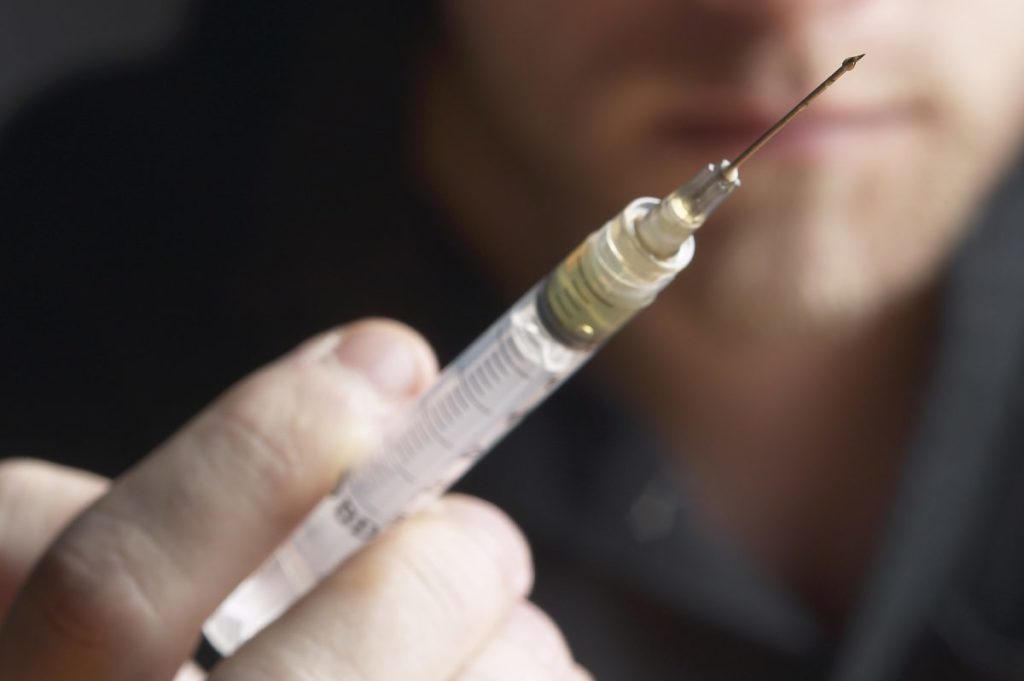The impacts of the opioid crisis are being felt in ambulance runs, calls to police and court programs specifically geared to address addiction in one local community.
And the city of Greenwood, along with several other communities in the state, is trying to get drug manufacturers and distributors to help pay for those costs.
In a federal lawsuit, the city is asking for damages and compensation that would pay for past and future expenses of addressing the opioid crisis, including medical care, rehabilitation and therapy, along with law enforcement and public safety costs, according to the filing.
But the lawsuit also is meant to hold the makers and distributors of those drugs accountable, said Manuel Herceg, an attorney with Taft, Stettinius & Hollister in Indianapolis.
“For all Indiana municipalities, the drive is very similar, they’ve seen the scourge of the opioid impact take over their communities,” Herceg said.
The lawsuit would help recoup some of the city’s costs, especially for emergency services, which are a huge cost to the taxpayers and cost the city in manpower for the time spent on those calls, Greenwood Mayor Mark Myers said.
And the issues are only getting worse, so the lawsuit also sends a message to the drug companies, Myers said.
“Part of it is to tell drug manufacturers to stop producing so much and stop encouraging narcotic use,” Myers said.
Nearly a dozen Indiana cities and counties have filed lawsuits against opioid makers and distributors, claiming the companies have flooded their communities with the addictive painkillers and engaged in deceptive marketing campaigns that helped lead to a growing crisis. Many of the lawsuits, filed in U.S. District Court in Indianapolis, are nearly identical, claiming the manufacturers aggressively pushed highly addictive, dangerous opioids and falsely represented to doctors that patients would only rarely succumb to drug addiction.
The lawsuits eventually will be consolidated in a multi-district litigation effort in U.S. District Court in Cleveland and will include lawsuits from other states, including Ohio and Kentucky, Herceg said. Plaintiffs include Fort Wayne, Noblesville, Terre Haute, New Castle, Chandler and Atlanta, as well as Harrison County, Vigo County and Jennings County. Defendants include opioid makers Purdue Pharma, which produces OxyContin and has no affiliation to Purdue University, Teva Pharmaceuticals and Jannsen Pharmaceuticals, as well as distributors Cardinal Health, McKesson and AmerisourceBergen.
Communities have had to bear the costs of the opioid crisis, including emergency medical runs, law enforcement costs, specialized drug programs, such as the Greenwood drug court, and crowded jails, such as in Johnson County, Herceg said.
“These are real, consequential, and have a tremendous impact on municipal coffers,” he said.
The lawsuit also points to local statistics showing how much of an issue the opioid crisis is in the county, including a doubling in both the number of emergency room visits due to opioid overdoses and chronic hepatitis C cases, which can be spread by drug users sharing needles, between 2011 and 2015, according to state data. Johnson County’s prescription rate in 2015 was also 84.1 per 100 people, which is above the state average, the lawsuit said.
In the lawsuit, the city claims the drug manufacturers are a public nuisance that threatens “the health, safety and welfare of the residents of Plaintiff’s Community, creating an atmosphere of fear and addiction that tears at the residents’ sense of well-being and security.”
That has impacted Greenwood and other communities in the state through higher rates of addiction and overdose, including in teens and children, babies being born addicted, loved ones caring for people who are addicted, increasing health care costs, employers struggling to get productive and healthy employees and an increase in crime due to drugs, the lawsuit said.
The lawsuit also claims the companies engaged in racketeering, illegal sale of drugs, violated the state’s corrupt business influence act, were negligent, used deceptive trade practices and engaged in fraud or fraudulent misrepresentation by overstating the benefits of the drugs and understating or providing misleading information about the risk of addiction, while also not reporting suspicious orders for drugs and supplying the black market, according to the filing.
“These companies have profited from pushing these opioids into the market and not being the gatekeepers they were tasked with being,” Herceg said.
Each community is seeking damages and compensation for responding to the opioid crisis, but those exact amounts will be determined by experts based on other data and information from the communities, he said.





